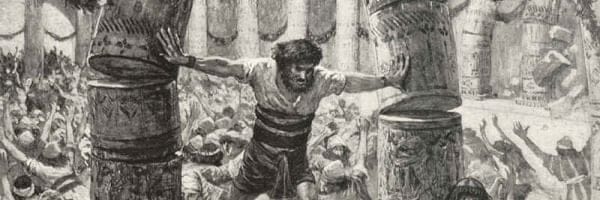The logical end of Sola Scriptura
I once held with absolute confidence that Scripture alone was the perfect, self-sufficient rule of faith. It seemed noble: God had spoken, the words were written, and nothing else could bind the conscience. But the more carefully I examined what that claim entailed, the more I discovered fault lines beneath my certainty.
1 – The Text and the Table of Contents
I had declared that only the Bible was infallible, and as an article of faith, I was only bound to believe the things contained within the sacred book - nothing more, nothing less - yet I could not name from within the Bible, what “the Bible” precisely was. Even St. John the beloved, the last remaining Apostle did not leave an inspired table of contents outlining Genesis through Revelation saying, these and no others.
My trust - in what I considered the Bible -already rested on history, manuscripts, and councils - human means that I had already deemed fallible. If my foundation required a fallible act to identify it, how could I still call it infallible?
2 – The Circle of Proof
When pressed for proof of it's infallibility, I appealed to verses that praised Scripture’s inspiration. But I realized I was arguing in a circle: I believed the book was divine because the book said so. Such an argument from Mormonism regarding the Book of Mormon would have been unacceptable because of it's absurdity, yet I rested my whole faith on this same principle.
3 – The Tyranny of My Own Judgment
Without an infallible guide, I had by necessity, become my own.
Which translation? Which manuscripts? Which commentary? I weighed scholars, compared commentaries, and prayed for the Spirit’s light, but the final verdict was always mine. I had made myself the magistrate over revelation, even as I claimed to sit beneath it. My supposed liberty to follow my conscience placed me at the helm in deciding divine truth. In truth, I did not worship the God who inspired the Bible - I worshiped my own opinion of what I thought the Bible meant - condemning and judging others as sinners who did not agree with my fallible private interpretation.
4 – The Fractured Witness
Among believers equally sincere and studious, I saw endless divisions.
Each group quoted Scripture, yet each contradicted the other.
If the same Spirit was guiding all, why so many voices?
The promise of unity that Christ made to His Church seemed absent from the world built on private interpretation.
5 – The Slide into Probability
When my confidence in interpretation wavered, certainty dissolved into probability. I could only hope that I had grasped the truth of the gospel correctly. Faith became an act of optimism rather than assent to divine authority. I saw how such uncertainty can drift toward skepticism or unbelief; the slope is gentle but real. Without an infallible guide, I possessed only opinion.
6 – The Discovery of Continuity
In studying early Christianity I found that Scripture and the Church were never enemies. The apostles wrote within a living community, and that community preserved, recognized, and proclaimed their writings. The idea of a lone believer armed with a private Bible would have been foreign to them. Revelation had always been relational: Word and witness, Scripture and Church.
7 – The Recognition of a Teacher
At last I understood the logic of Christ’s promise:
“I am with you always, even unto the end of the age” (Matt 28:20).
If He remains with His Church, then His truth must remain teachable.
An infallible God does not give an infallible book and then abandon His people to fallible guesses about its meaning.
The same Spirit who inspired the Word continues to interpret it through the body He established.
8 – What I Now Confess
I can no longer rest my faith on sola scriptura.
It demanded of me a certainty it could not provide and a humility it did not encourage. I see now that revelation requires not only a written record but a visible, living, & authoritative interpreter. In God’s providence, that interpreter is the Church which Christ founded upon St Peter, the one He promised would teach all nations in His name. To trust her is not to distrust Scripture but to trust the God who authored both.

